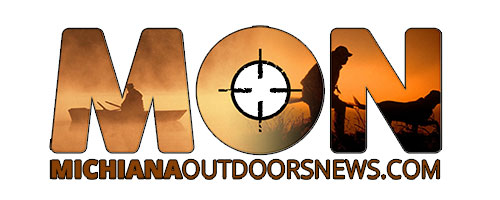
- Details
IDNR Report
The Indiana DNR has stocked 70,000 channel catfish in 131 locations and 57,000 fall fingerling walleye in 11 locations since mid-October to expand fishing opportunities across the state.
The channel catfish range in size from 7-12 inches long. The fall fingerling walleye average 5 to 8 inches long, typically reaching 14 inches after two to three years of growth and 16 inches three to four years after stocking.
All stocked channel catfish were stocked in publicly accessible waters after being raised by Cikana (Morgan County), Driftwood (Jackson County), and East Fork (Daviess County) state fish hatcheries.
“Once stocked, channel catfish acclimate to their new environment and start biting quickly while the walleyes will take a few years to reach legal size,” said fisheries biologist Tom Bacula.
Fall fingerling walleye were stocked in Big Turkey, Crooked, and Clear lakes (Steuben), Fish, Pine/Stone lakes (LaPorte), Loon and Sylvan lakes (Noble), Pretty and Wall lakes (Noble), Winona Lake (Kosciusko), and the St. Joseph River (St. Joseph). Those walleyes were purchased from a commercial fish supplier and grown at Fawn River State Fish Hatchery. In addition to these lakes, there are multiple other lakes stocked with walleyes by privately funded lake associations. A stocking permit from DNR is needed to do any stocking.
Anglers are required to follow bag and size restrictions. In most lakes and reservoirs, the statewide regulation is 10 channel catfish per day with no more than one being longer than 28 inches. For walleye, the daily bag limit is six with a minimum size of 16 inches if caught north of State Road 26, and 14 inches if caught south of S.R. 26. A few lakes have a different bag limit, and they are listed in the Fishing Guide, along with all other fishing regulations, at on.IN.gov/fishingguide.
For all fish stocking locations and plans, visit on.IN.gov/fish-stocking.
Learn more about catfishing at wildlife.IN.gov/fishing/catfish-fishing.
Learn more about walleye fishing at on.IN.gov/walleye.

- Details
IDNR Report
The Indiana DNR has closed the bobcat trapping season after reaching the statewide quota.
The season was scheduled to run from Nov. 8 – Jan. 31, or until the quota of 250 bobcats was reached.
The framework of Indiana's bobcat season was carefully designed with a total harvest limit based on population data collected throughout the state. Databases and reporting mechanisms were put into place to allow for close monitoring of the total season harvest.
“Licensed trappers had a successful first bobcat trapping season,” said Geriann Albers, DNR’s furbearer and gamebird program leader. “DNR will review what we’ve learned from this season as we move forward with regulated harvest and bobcat management.”
Additional information on the bobcat trapping season can be found at on.IN.gov/bobcat-season.
- Details
IDNR Report
All veterans and active-duty military personnel, and everyone in their vehicle, will be admitted free to DNR-managed state parks, reservoir properties, state forest recreation areas, and off-road state recreation areas on Veterans Day, Tuesday, Nov. 11.
This includes admission to Falls of the Ohio State Park’s Interpretive Center.
“We honor the sacrifices and service of our veterans and active-duty military and look forward to recognizing them with a day exploring some of Indiana’s most treasured natural places,” said Brandt Baughman, director of Indiana State Parks.
Veterans and military personnel should simply tell the gate attendant at the property that they are either a veteran or serving and on active duty.
For general information about state parks, reservoirs, forest properties, and off-road state recreation areas, see on.IN.gov/recguide.
For information about interpretive programs at state parks and reservoirs, see interpretiveservices.IN.gov.
- Details
IDNR Report
All veterans and active-duty military personnel, and everyone in their vehicle, will be admitted free to DNR-managed state parks, reservoir properties, state forest recreation areas, and off-road state recreation areas on Veterans Day, Tuesday, Nov. 11.
This includes admission to Falls of the Ohio State Park’s Interpretive Center.
“We honor the sacrifices and service of our veterans and active-duty military and look forward to recognizing them with a day exploring some of Indiana’s most treasured natural places,” said Brandt Baughman, director of Indiana State Parks.
Veterans and military personnel should simply tell the gate attendant at the property that they are either a veteran or serving and on active duty.
For general information about state parks, reservoirs, forest properties, and off-road state recreation areas, see on.IN.gov/recguide.
For information about interpretive programs at state parks and reservoirs, see interpretiveservices.IN.gov.
- Details
IDNR Report
Indiana Conservation Officers encourage Hoosiers to help the Indiana Department of Natural Resources (DNR) put an end to poaching by reporting potential violations to Turn In a Poacher, Inc. (TIP).
TIP is a nonprofit conservation organization that partners with DNR to protect fish and wildlife resources by increasing public support and involvement in bringing violators to justice.
A poacher is a thief who illegally steals wildlife that belongs to all Hoosiers. DNR manages wildlife for everyone, and every person can help TIP support DNR efforts by reporting potential violations at 1-800-TIP-IDNR (800-847-4367) or tip.IN.gov. Doing so will help conserve wildlife for future generations.
Call TIP if you see, hear, or learn about poaching or another violation regarding fish and wildlife. If your “TIP” leads to an arrest, you may receive as much as a $500 reward, or you can remain anonymous if you choose. In 2024, TIP received 1,025 tips and paid thousands of dollars in rewards for tips that led to the arrest of a suspect.
“Our citizens are key in the fight to help stop poaching in Indiana. They are a main reason why the Indiana TIP program has been successful in bringing those who violate fish and wildlife laws to justice,” said Col. Steve Hunter, director of DNR Law Enforcement.
To view all DNR news releases, please see dnr.IN.gov.


